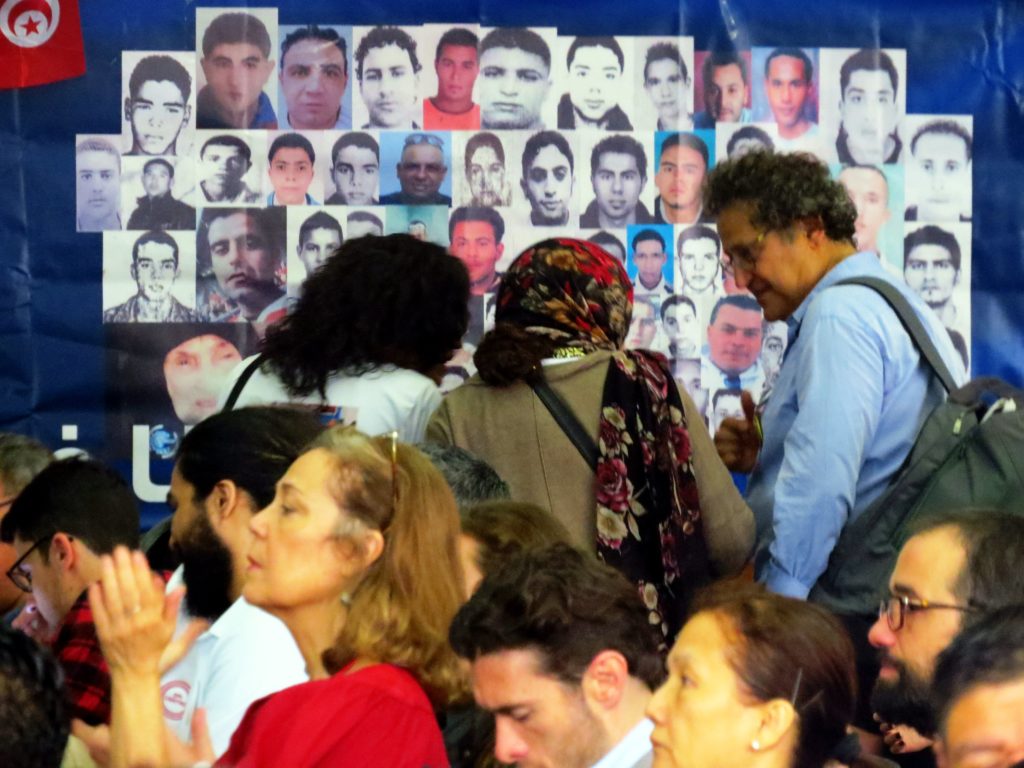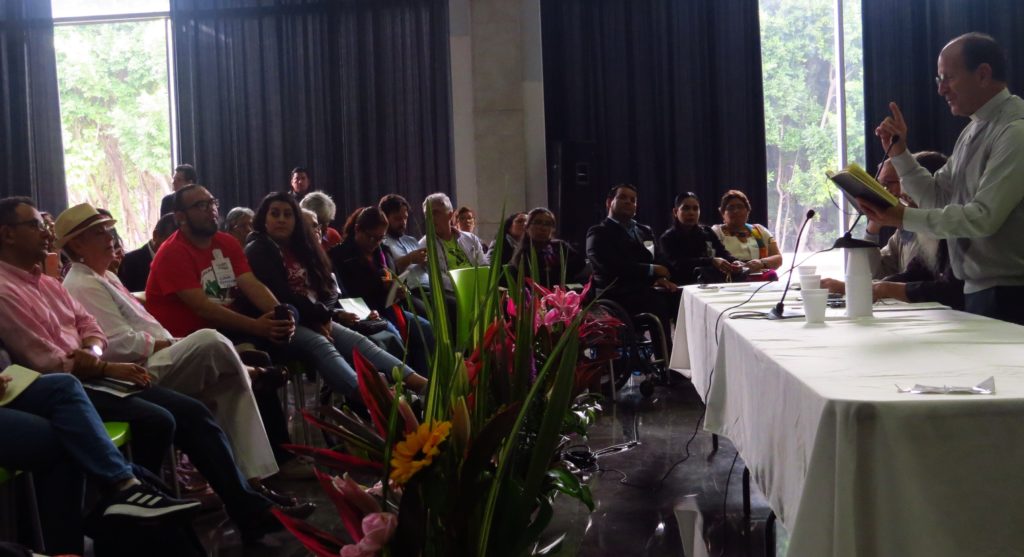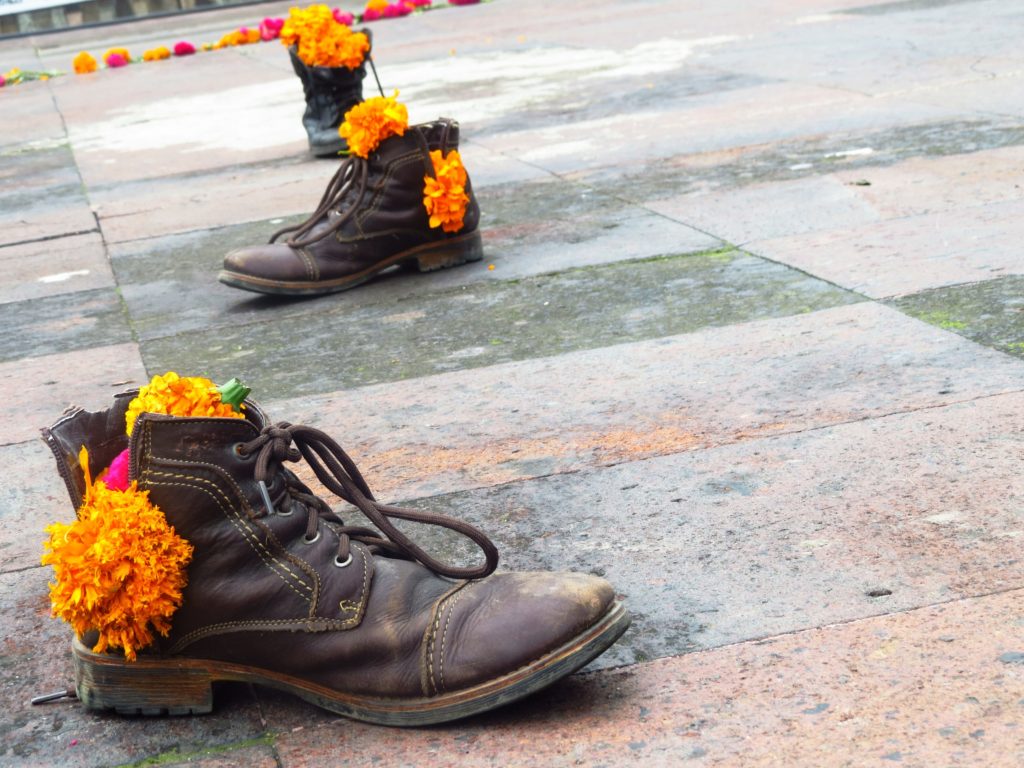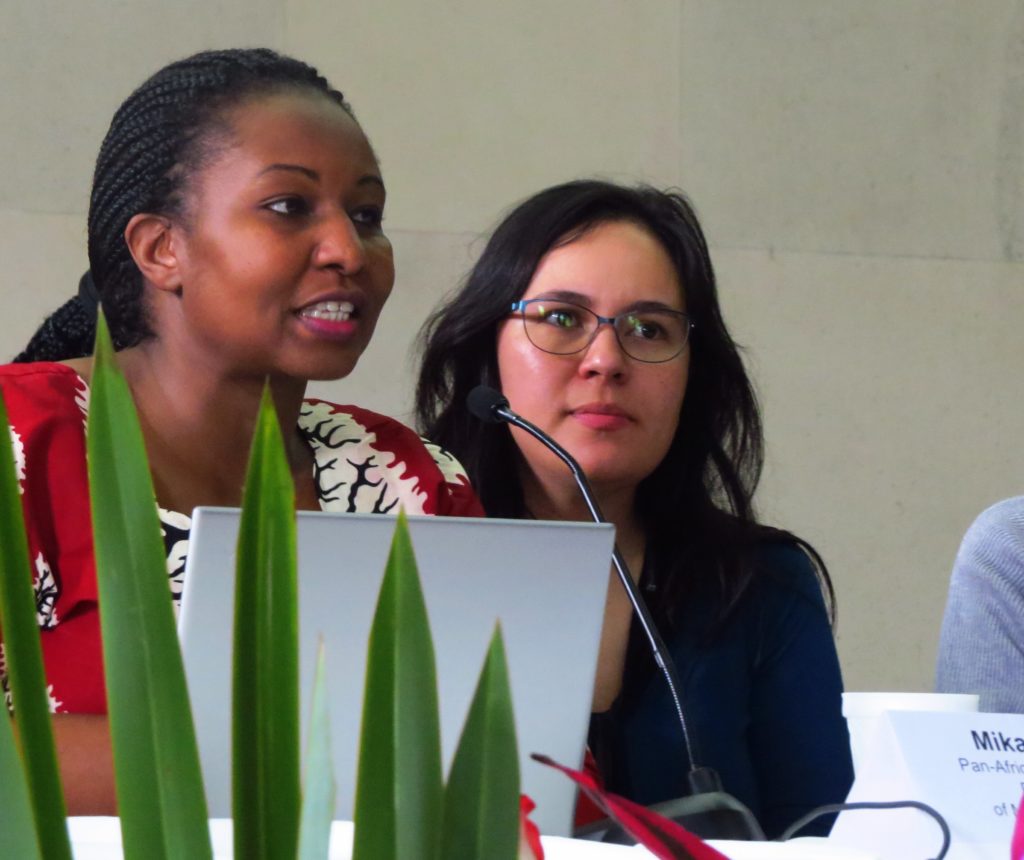
While US President Donald Trump and other like-minded political and economic leaders are building walls, migrant activists say they are building bridges.
Some 2,000 activists and academics from over 60 countries gathered in Mexico City over the weekend for the 8th World Social Forum on Migrations. The gathering aimed to create a new vision of migration and bring the various movements and organizations together. It was coordinated by MIREDES International and the International Network of Migration and Development, and follows the first Social Forum on Migration in Porto Alegre, Brazil in 2005.
“Migrants are protagonists, not victims” was one of the key messages participants and panelists stressed at the forum.
“For refugees, there is no place to go home to … We have no choice but to fight back. We should refuse to be invisible. We can speak for ourselves,” Eni Lestari, chair of the International Migrant Alliance said.
In the middle of intensifying attacks on migrants globally, there is an “urgency to strengthen unity between migrants and solidarity with other communities,” she argued.
Father Alexandro Solalinde, a well-known Catholic priest and human rights activist who has been threatened multiple times by criminal organizations agreed that migration is “breaking” capitalism.
“On one side is Donald Trump, and on the other side is societal solidarity,” he said.

While the forum was being held, the first migrant “caravan” or “exodus” was making its way up through southern Mexico. People fleeing gang violence, death threats and extreme poverty left their home countries of Honduras, Guatemala and El Salvador in mid-October. Their procession of thousands has since been followed by two more. Over the weekend, Trump sent some 4,000 troops to the border at a potential expense of US$220 million. He also paid for an ad that tried to link the exodus migrants and refugees to a murder.
While hundreds of thousands of migrants move to and through Mexico each year, the current exodus received a lot of attention from US politicians as they faced mid-term elections. The exodus is also remarkable for its size, as migrants usually travel in small numbers in order to avoid attracting attention.
However, as Carlos Marentes of La Via Campesina, said at the forum, “migrating is an act of resistance, and if there’s a symbol of the struggle of migrants it’s this caravan from Central America.”
On Friday, the exodus was in Veracruz state. Local migrant activists at the forum like myself paid close attention to updates every hour, ready to help out once the exodus arrived in Mexico City. The Veracruz state government originally agreed to supply migrants with 160 buses to Mexico City. The move was celebrated as a victory for organized migration, but the state government quickly capitulated to pressure from Mexico City to renege on the offer.
Officials in the capital pointed to the fact that large parts of the city didn’t have access to water due to 4-day long repairs. However, this hadn’t stopped thousands of tourists being welcomed into the city over the weekend for Day of the Dead celebrations.

Without any buses, the exodus finally split up, with refugees and migrants opting to hitch or walk in small groups via Puebla state, with others electing to stay longer in Veracruz.
On Sunday, I attended to some who arrived in Mexico City. They were tired, and many had colds and sore throats – typical of people who are stressed and not sleeping and eating well.
“Capitalism has condemned migrants, youth, campesinos, and women to disappear. Migration says, ‘we’re not going to disappear, we’re going to do everything we can to survive,’” Marentes said.
International workers
Undocumented migrants, and even those with documents, tend to be vulnerable to extreme worker exploitation. As a result, participants at the forum stressed that rather than being victims, migrants are international workers.
Immigrant domestic workers from countries such as Malaysia, Hong Kong and Indonesia, spoke out about how they aren’t “recognized as workers and don’t have the right to organize or to receive decent wages. So it’s important to be heard.”
Irasema Cavazos, a leading organizer of Domesticas Unidas (Domestic Female Workers United) in San Antonio, Texas, talked about how most domestic workers who clean homes, look after children, and care for elderly in the US, are undocumented female migrants from Latin America. Her group is run by such workers, who teach others their rights, how to negotiate for a better salary, and to value the work they do.
“We used to find the women at bus stops, but with the current government, they are more hidden, so we go to churches and reach them through word of mouth,” she explained.
“[Capitalists] want to increase their super profits, and so we are human beings without human rights. We are tricked into slavery, we are vulnerable to abuse,” Lestari also noted, adding, “Change will come when migrants participate in our movement.”

Milka Isinta, a Kenyan leading the Pan African Network in Defense of Migrant Rights, agreed. “Our humanity doesn’t become less because we cross borders.”
But around the world, when it comes to enforcing human rights, migrants, along with women, are always last on authorities’ list of priorities. Maria de Carmen Velasquez attended the forum to talk about her 23-year-old daughter who went missing in Mexico a year ago today. “It’s very frustrating. The authorities here in Mexico don’t do anything, and it isn’t just one person – there are hundreds of thousands who have disappeared – women, and migrants,” she said.
The next morning, after Velasquez told me about her daughter, I received news that two truckloads of exodus migrants had allegedly disappeared in Puebla or Veracruz states. Like most disappearances, it hadn’t been confirmed, and information was conflicting. As in many other cases, it is possible the migrants were taken by organized criminals to be used for slave and sexual labor.
The social forum ended Sunday night with a general call for movements, unions, and organizations around the world to mobilize in solidarity with the exodus or “caravans” of migrants in Central America and Mexico, as well as with all the migrant movements “that struggle against barbarism and for human dignity and the emancipation of our peoples.”
Tamara Pearson is a journalist and migrant-rights activist based in Puebla, Mexico. She is the author of The Butterfly Prison, blogs at Resistance Words and can be found on Twitter @pajaritaroja.
